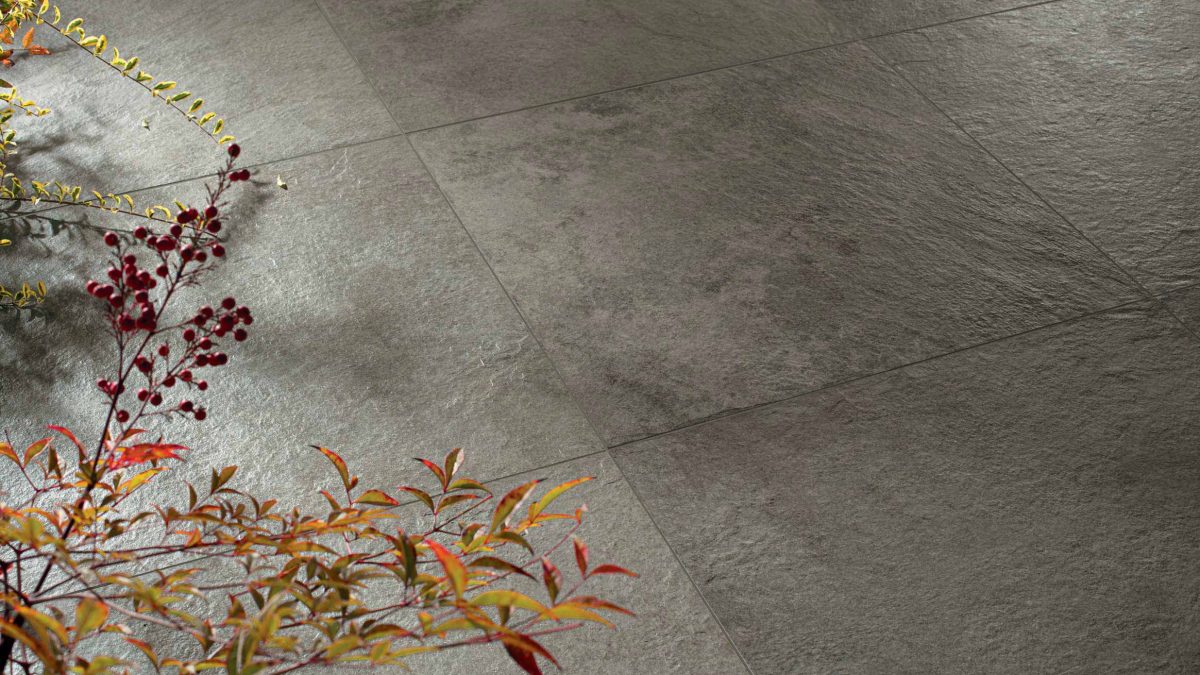
How to choose tiles for a garage? What are the standards for garage tiles?
Finding the right tile for your garage can seem complicated because there are so many things to consider. Is it durable and easy to maintain? Can I afford it?
As you can see, the sorting process takes time and thought. You need to consider the different types of flooring available and the function your space will serve. We understand that this can be confusing. That’s why we’ve set out to present the benefits and essential criteria for making the right choice.
What are the advantages of installing tiles in a garage?
Economical
garage tiles are an economical choice, especially if the owners do the work themselves. Compared to options requiring specialized labor, this choice is less expensive. The exact cost varies depending on the type of coating and the manufacturer, but there are many options to suit all budgets.
Visually Aesthetic
Undertaking this project is a great way to improve the appearance of your premises. Indeed, tiles provide a diverse range of colors, textures, materials and patterns. This diversity allows you to personalize the place by creating an aesthetically pleasing space.
What criteria should you use to choose garage tiles?
When you enter your garage, you notice cracks, stains and traces of liquids on the floor. These elements not only spoil the appearance of the enclosure: they also pose a risk to your safety. As you can see, the time has come to apply a new coating.
However, there are a few factors to assess beforehand: how to choose a floor style? Is it easy to clean?
Here are the main considerations to observe before starting work.
Color and texture of garage tiles
Transforming your garage according to your tastes thanks to the existing ranges of colors and styles remains possible. For example, you can give it a metallic, chipped or stone appearance, or choose between green, red and blue. In addition to the available shades and reliefs, the installation must also blend in with the overall setting. If you plan to install cabinets, opt for a neutral tone, such as gray, black or white.
Durability
Although the main purpose of this place is to park a vehicle, its use sometimes extends beyond that. It can therefore serve as a workshop, a gym, or even an additional living space. In all cases, the floor must remain capable of supporting pressure, tolerating shocks and dirt. The suitable materials exist for this. Thus, porcelain stoneware, is a homogeneous and solid biscuit, available in full mass or enameled. For exceptional resistance, opt for cement tiles. Finally, granite, made from natural stone, is distinguished by its robustness even when faced with chemical substances.
Maintenance
It often happens that a heavy object is dropped or a spilled liquid makes the floor dirty in a garage. That is why choosing an easy-to-clean covering is essential to avoid inconveniences. Opt for a material that does not require a specific substance or complex cleaning technique.
A smooth tile, resistant to elements such as gasoline, grease or oil, allows for quick and effective restoration. A mop with a mild detergent is often enough to restore a spotless floor. Avoid abrasive agents, clean up the damage as soon as it appears and polish the surface if necessary.
Volatile organic compounds (VOCs) in garage tiles
VOCs are chemical substances used in paints, building materials, etc. They have a high vapor pressure and insufficient solubility in water. Exposure to these agents can cause allergies and dizziness, and even damage to the nervous system, kidneys and liver.
Also, it is advisable to always select a coating with low VOC content: installation and handling remain simpler.
Safety
The last thing you need is a surface that is dangerous for you and your loved ones. Falls can be particularly risky, especially for the elderly. Even if you are younger, one of the factors to consider before renovating the garage is a non-slip coating. This parameter is often an optional addition that nevertheless provides more peace of mind.
What are the standards for garage tiling?
Before installing, checking the properties of the material is important. To meet this requirement, you can refer to the established standards that evaluate the performance of the product. Let’s explore these elements to better understand how to choose the ideal tile.
The UPEC standard
The UPEC standard allows you to gauge several important aspects of the robustness of a tile. This classification considers four essential criteria: wear, punching, water, and chemical agents.
- wear (“U”): it measures the resistance to walking and trampling with a gradation that starts from U2 to U4. It is recommended to opt for a high level, due to the many comings and goings in this area.
- punching (“P”): this criterion evaluates the solidity against mechanical action of the furniture. The values vary on a scale from P2 to P4 or P4S. To support the weight of vehicles and heavy equipment, the last two are the most appropriate.
- water (“E”): this parameter examines the reaction of the coating to water and humidity, with degrees E1 to E3. To deal with damage caused by infiltration, E3 seems especially recommended.
- chemicals (“C”): tolerance to toxic substances is indicated by levels C0 to C2. A tile with a C2 grade offers maximum protection against corrosive agents common in garages.
The PEI index
This procedure applies only to glazed tiles and allows them to be classified according to their resistance to abrasion. Thus, it helps to determine the appropriate use of the coating. On the product sheets, the PEI index is represented by a score from 1 to 5, indicating the level of resistance to deterioration.
The MOHS scale
The MOHS scale determines how the tile reacts to scratches and includes ten levels. The first three characterize a weak resistance, while the last two provide a very good one. Grades 4 to 7 guarantee an intermediate resistance.
The adhesion of garage tiles
Finally, adhesion is rated from A to C, with C representing the best grip. To minimize the risk of falls, it is advisable to choose a product with a B or C fixing.
What solution for you and your garage?
The answer to this question depends on what you plan to use the space for. If you plan to use the space for work, rubber or vinyl tiles seem ideal. These coverings are more comfortable for the feet and back, while remaining relatively easy to maintain.
Alternatively, you may decide to transform your space into a multi-purpose family space without parking a car there. In this case, focus on the aesthetics and durability offered by models such as porcelain tiles and wood-effect tiles. These types of materials are elegant, robust and easy to clean. However, with so many options available, it is recommended to consult a professional for personalized advice.
In short, finding the right garage tiles can be a real challenge. There are many factors to consider, such as reliability, appearance and budget. However, if you follow our guidelines, you can transform your premises into a place that you will enjoy using at your leisure.




